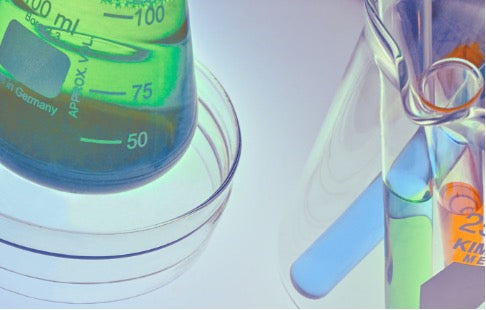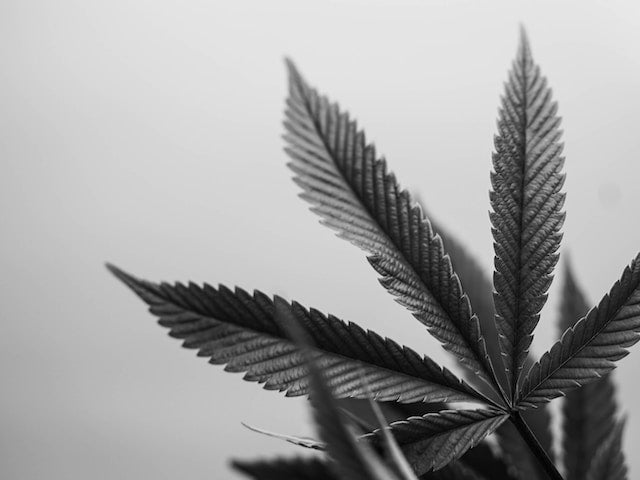Your cart is currently empty.

If you use THC products - frequently or casually - you may be wondering, "how long does THC stay in the body after consumption"? The answer can vary wildly depending on your body, the product, and how frequently you use it. So whether you're looking to pass a drug test or are just curious about them, here's the breakdown on how long you can expect THC to stay in your system.
How Does Your Body Metabolize THC?
Like any other substance, THC is metabolized by your body, though the process can be frustratingly slow for some. While you just have to be patient, THC in the body will eventually clear out. When THC enters your body, your bloodstream immediately absorbs the THC metabolites. This feature remains true regardless of what type of THC product you consume. What ultimately changes is the route the THC takes to travel to your brain. When you inhale THC, for example, it starts its journey in your lungs. On the other hand, edibles have to go through your digestive tract first, where your stomach absorbs their components before entering the bloodstream.
Additionally, your organs and fatty tissues may store some amounts of THC for some time. All THC metabolites that make it to the kidneys may be reabsorbed into the bloodstream, extending the time it takes to detox from weed. THC has more than 80 metabolites, which are what actually show up on drug tests. These metabolites stay in your system longer than the THC compound itself. So when we wonder, "how long does THC stay in the body, anyway?" we're more or less concerned with these metabolites.
Detection Windows By Drug Test
Different tests have varying timelines of detection. If you know what test you might end up facing ahead of time, it can help you strategize your THC detox or cleanse. Here are some general windows on how long you can expect THC to still pop up on various types of drug tests. Keep in mind that these are the dates from your last usage and that some physiological factors can lengthen or shorten these numbers.
Urine
Urine tests are by far the most common. When you're applying for a job, it's a pretty safe bet you'll be sent in for a urine test. The Mayo Clinic breaks down the accuracy of urine testing like this:
- Mild usage (up to 3 times per week): 3 days
- Moderate usage (approximately 4 times per week): 5 to 7 days
- Regular usage (daily usage): 10 to 15 days
- Heavy usage (multiple times per day): 30 days or more
Saliva
This study published in 2013 gives us a similar breakdown of how long saliva testing can detect THC. The data for saliva tests is somewhat less nuanced than that for urine testing since urine testing is so much more common, but here are the general numbers:
- Mild usage: 1 to 3 days
- Chronic usage: Up to one month
Blood
You're even less likely to end up taking a blood test, but it's not outside the realm of possibility. Blood testing can be one of the more complicated methods to predict precise numbers.
According to research, THC is detectable in the bloodstream almost immediately after inhalation (and longer for oral consumption). In general, you can expect a blood test to detect THC for several days, although heavy users may trigger positive results for up to a month.
Hair Follicles
This type of drug test is the big one. By testing hair follicles, the test can detect THC for up to 90 days. Weed travels to the hair follicles through small blood vessels, and small amounts of it will remain in the hair. And since hair grows slowly (typically a half-inch per month), a hair sample less than two inches in length can confirm THC consumption within a three-month timeframe.
False-Positive Testing
There are a few scenarios that may lead to false positives on different types of drug tests. One is second-hand marijuana smoke, although the odds are incredibly low. You would need to be hanging out with someone smoking right before your test, and even then, it's still unlikely. CBD oil or other cannabidiol products can give you a false positive. Some states allow CBD products to contain higher THC levels (although most products are much lower than that), which can cause a THC test to flag you as a weed user.
If you take Efavirenz (Sustiva) for an HIV infection, this medication can cause a positive test result, as well, especially in less sensitive tests. If you have reason to believe you may be likely to have a false positive, bring it up beforehand. Usually, taking a second test or taking a more sensitive test can clear up any misunderstandings. Weed in the body is one thing, but a false positive is just unfair.
Factors Influencing Detection Times
There are multiple factors that can influence how long THC stays in the body.
Frequency of Use
One of the most critical factors that affect THC absorption rates is how much THC is in your product--in other words: potency. If you look again at the detection time windows for the different testing methods, you'll see that heavier users will have a more extended detox period than lighter users.
Sex
Historically, clinical trials have excluded women from the bulk of medical research. But, new studies - along with anecdotal evidence -suggest that men and women metabolize THC differently. This claim makes sense as estrogen (present in both sexes but much more prevalent in cisgender women or people taking hormone replacement therapy) seems to have a significant effect on the metabolization of THC.
Metabolism
This one's pretty simple. Your metabolism is what determines how quickly you well, metabolize things. So it goes to figure that a slower metabolism is going to move THC out of your body at a slower rate. Men tend to have higher metabolisms than women. Still, many other factors, including activity level, weight, and overall genetics, can have just as much of an impact on your body's metabolism.
Body Mass Index (BMI)
THC is lipid-soluble, which means it binds to fat. So a higher percentage of body fat can mean that THC will be sticking around for longer.
Not All CBD Products Are The Same
Remember what we said about false positives and CBD products. It's essential to pay close attention to the CBD products you consume if you're worried about THC in your system. There are legal limits to how much THC can be in that bottle of CBD you bought, but odds are the amount isn't zero.
THC & CBD In The Bloodstream
You should be conscious of the type of CBD you are buying and ultimately consuming. CBD Isolate will not have any THC, but forms like broad and full-spectrum CBD may have more than 0.3% THC, even this low amount could show up on your drug test especially if you use frequently and for a long period of time.
Final Thoughts
There's no one simple answer to the question "how long does THC stay in the body?" though it would sure make life easier if there were. Your genetics, hormone levels, THC habits, and many other factors make your test results vary wildly from those of other people. Are you worried about an upcoming drug test? Give your body a boost with one detox kit and feel assured you will pass your drug test.



